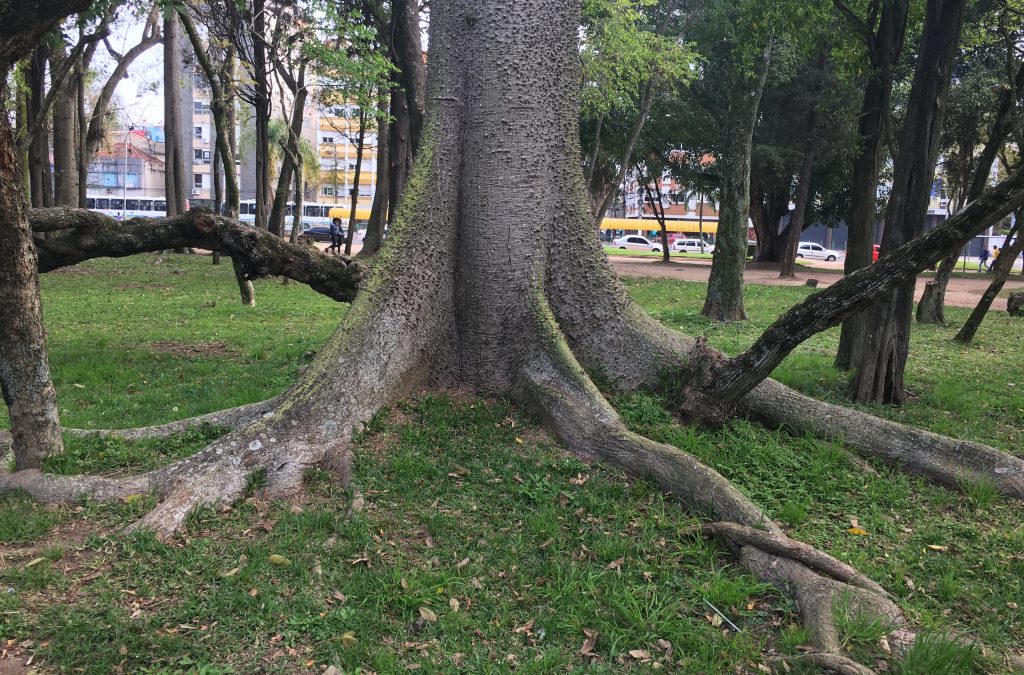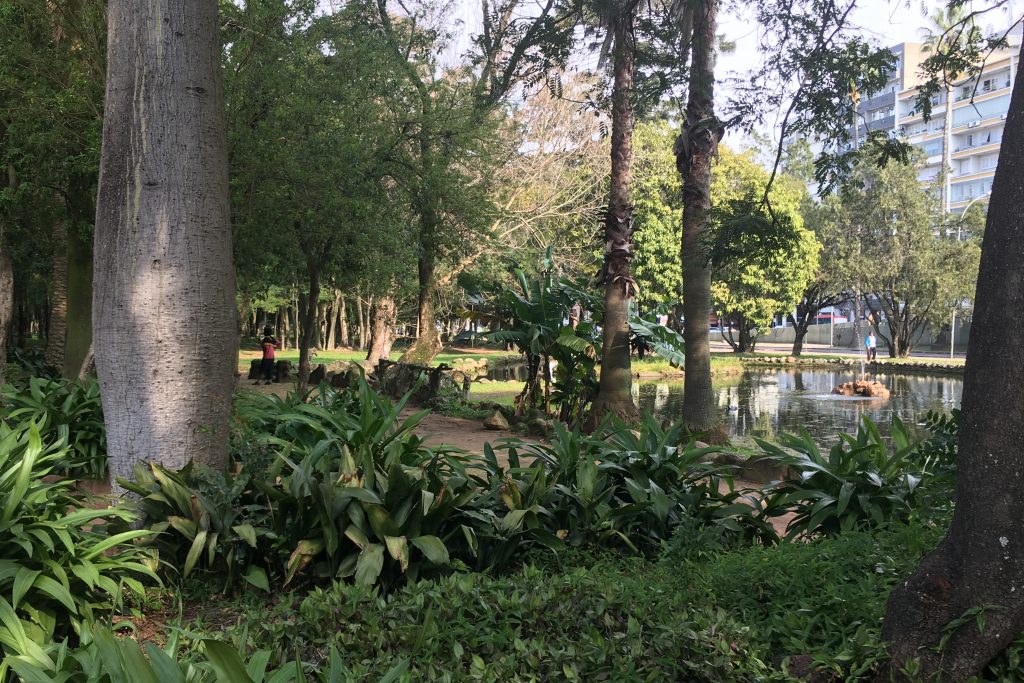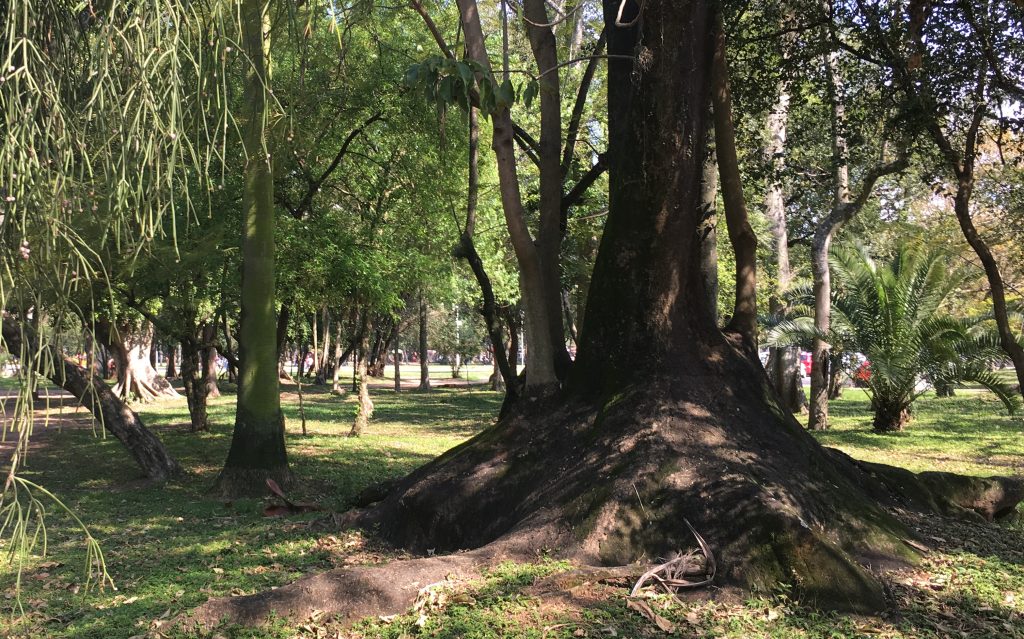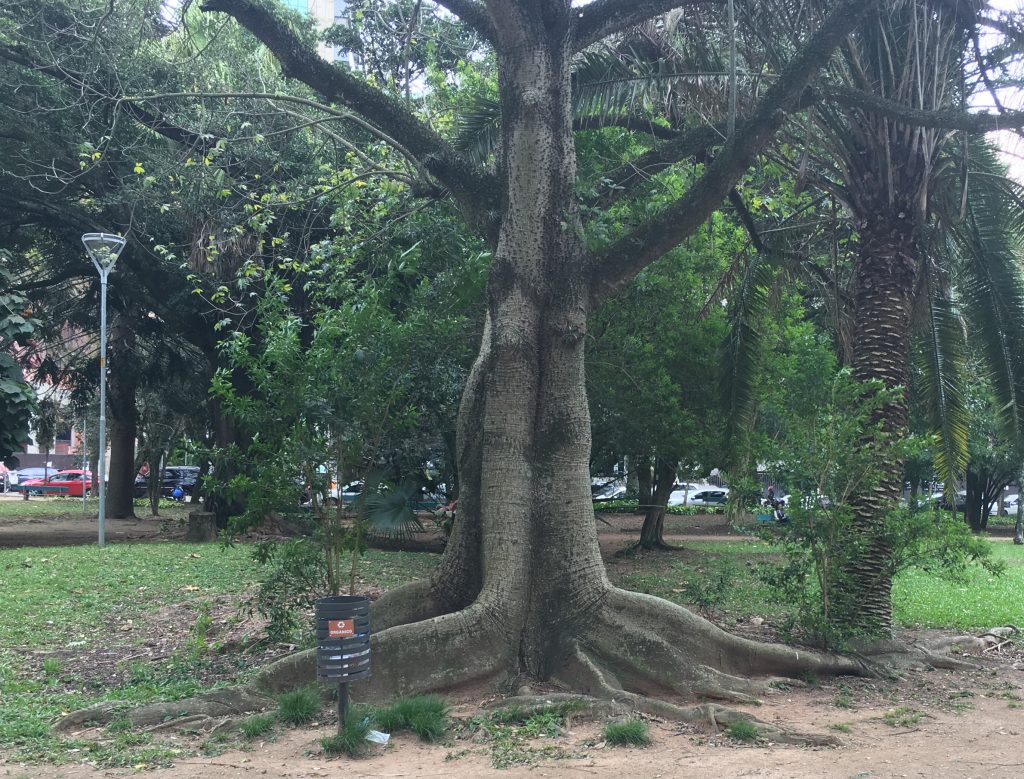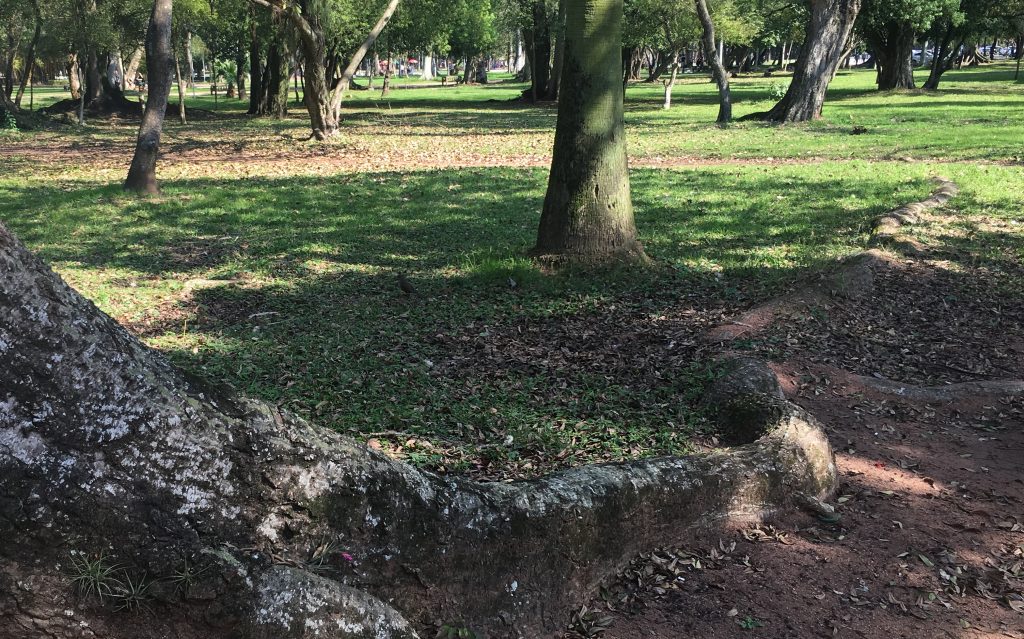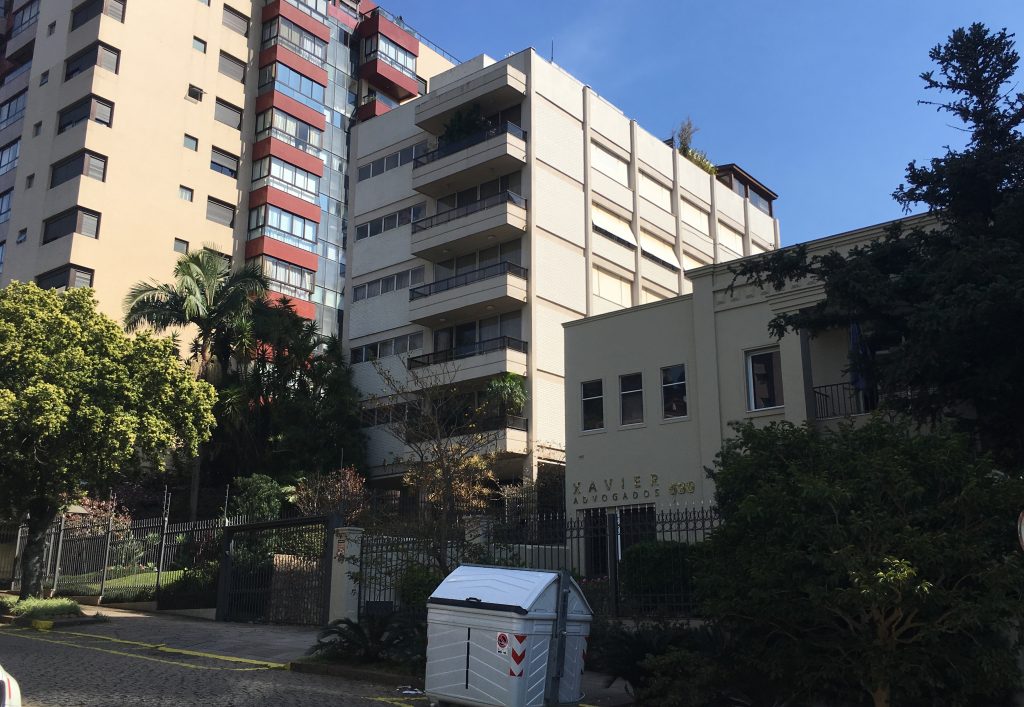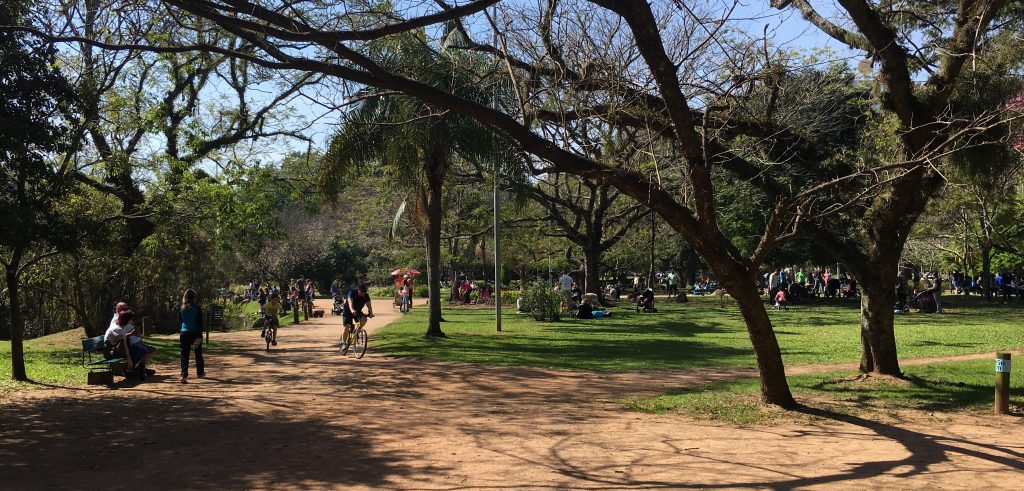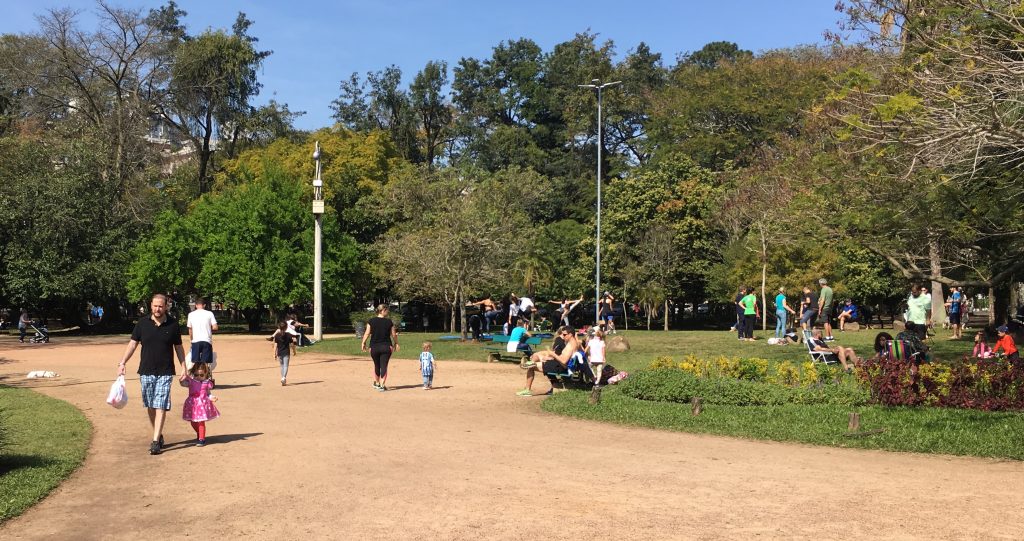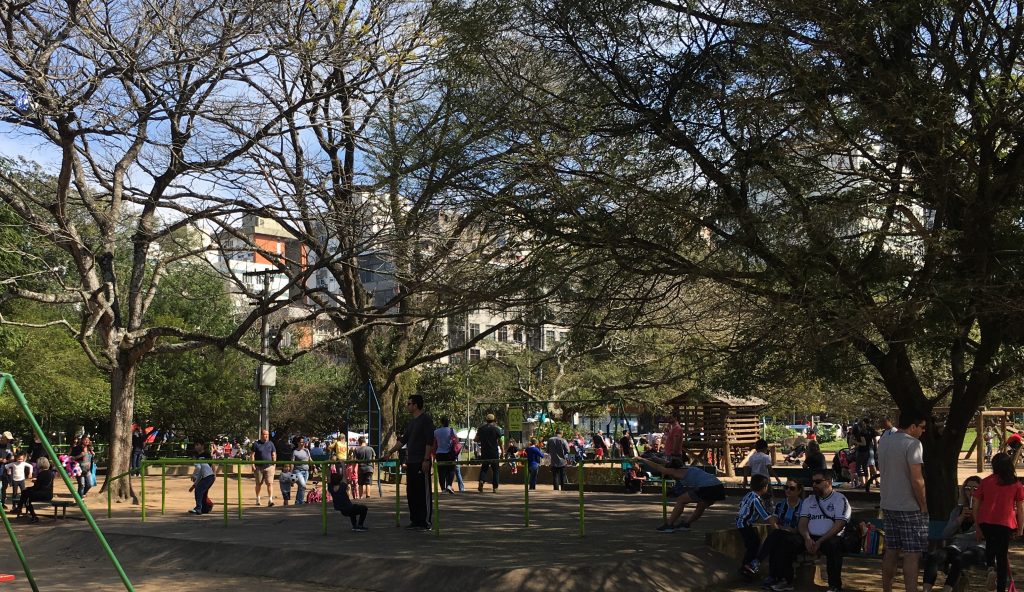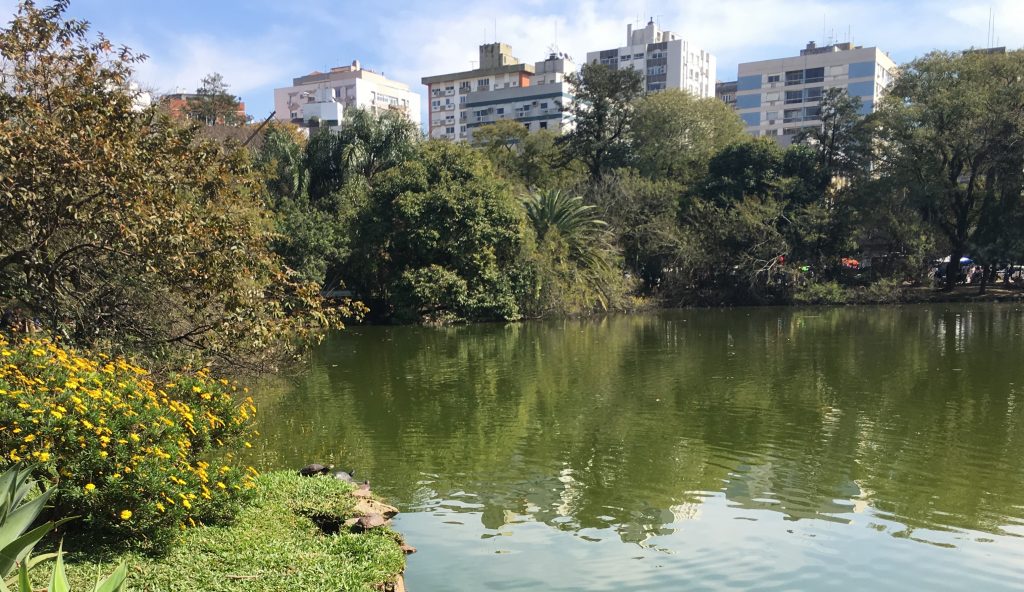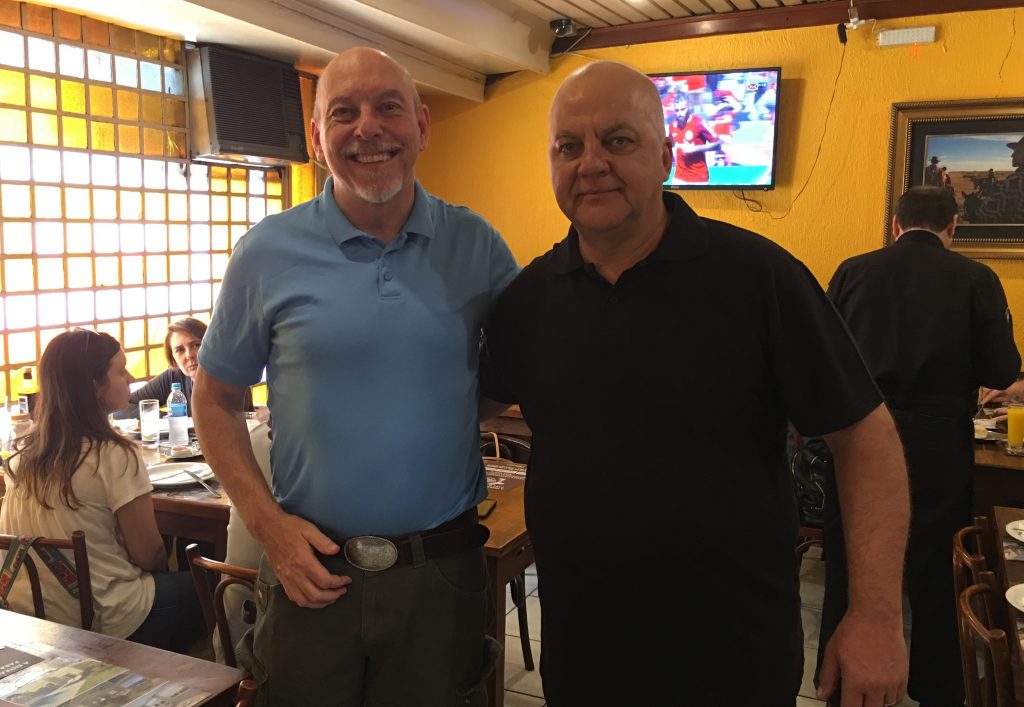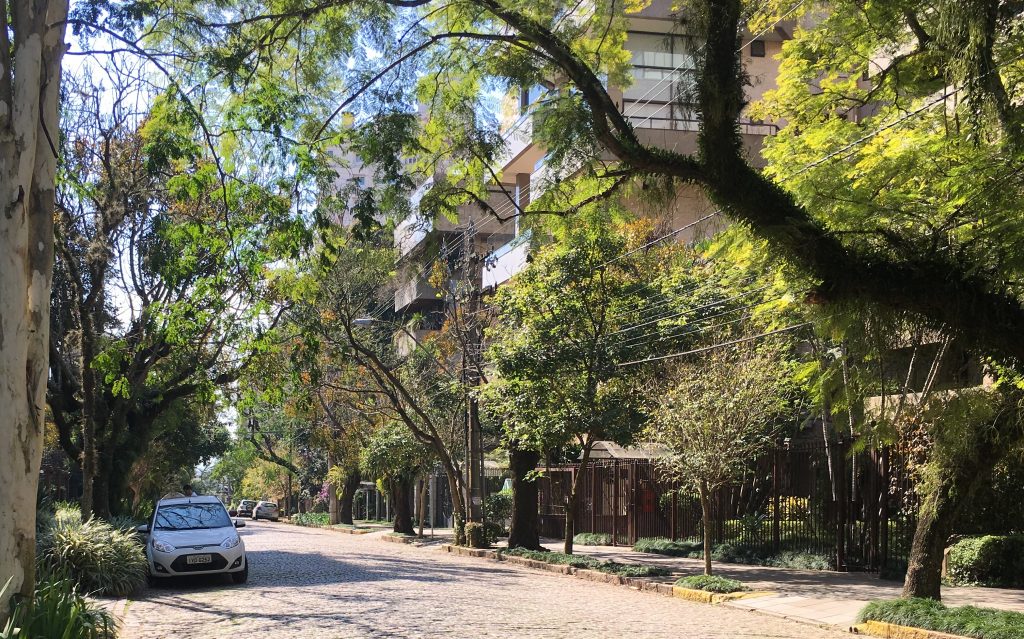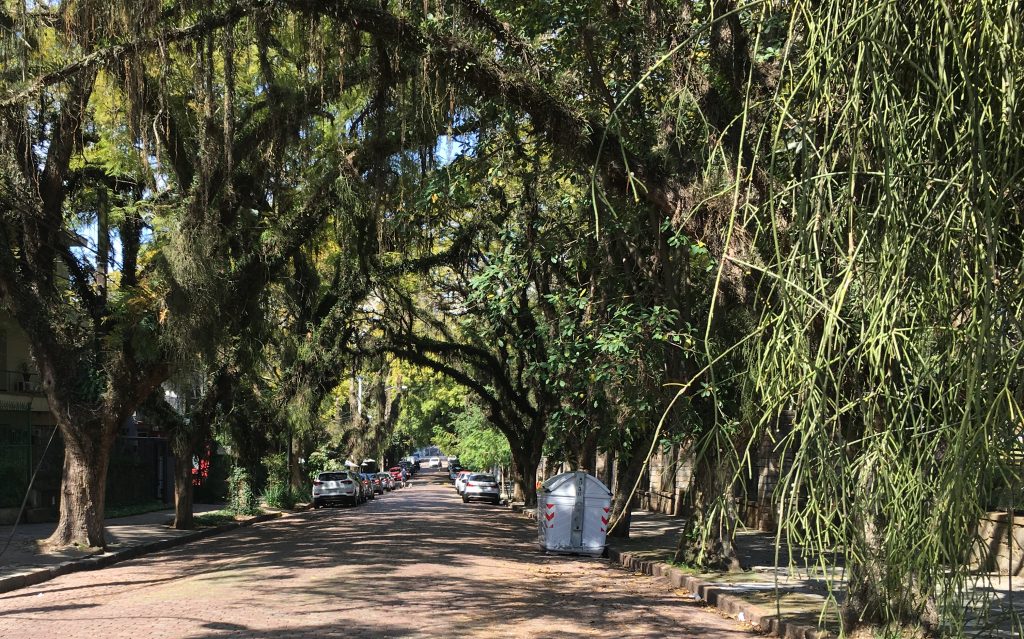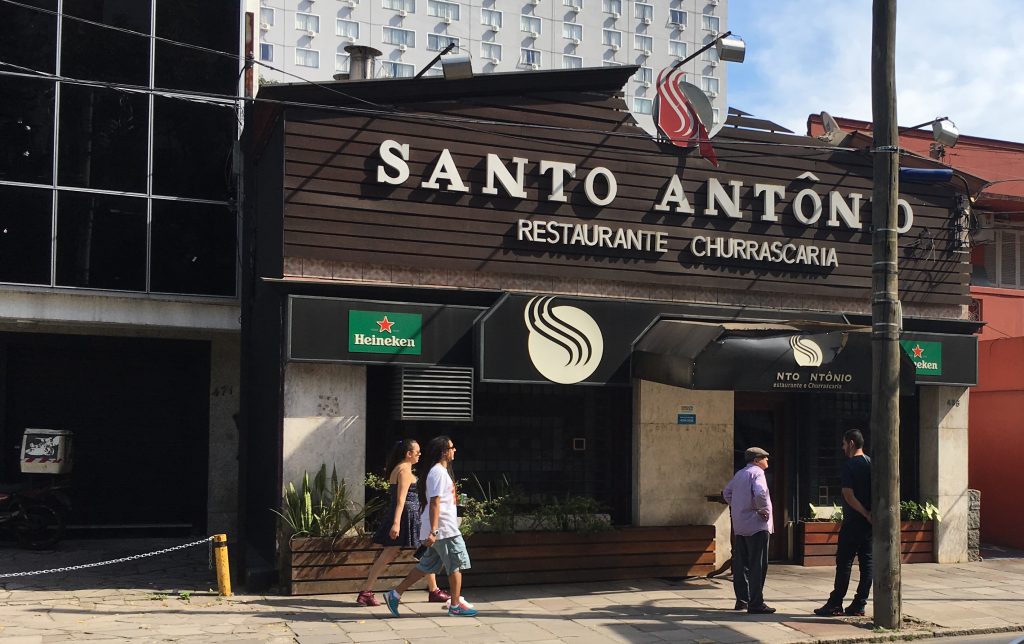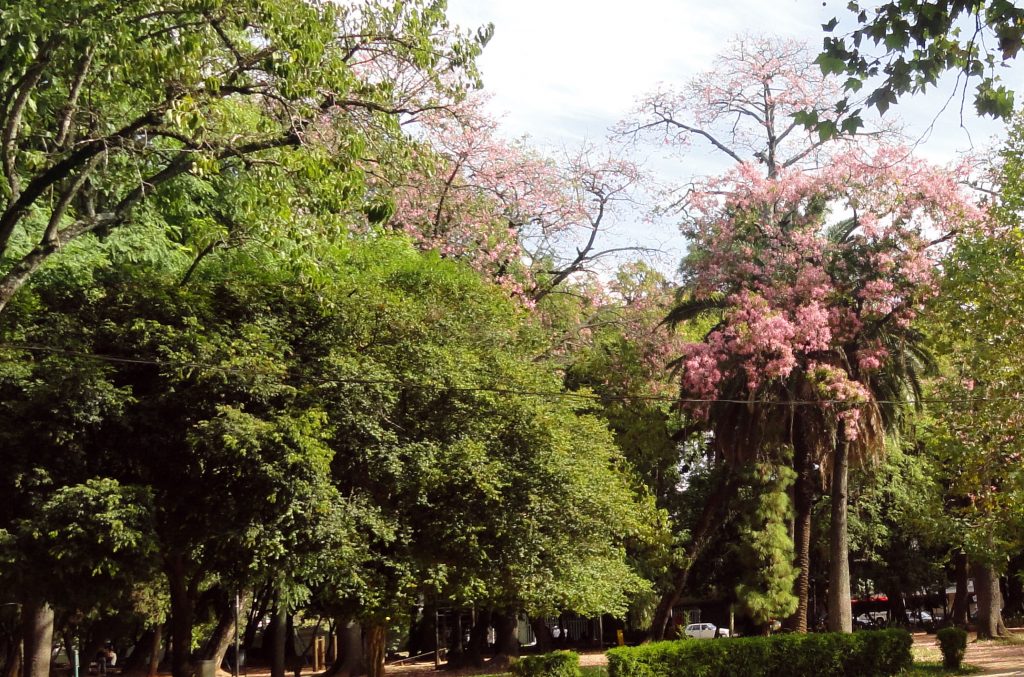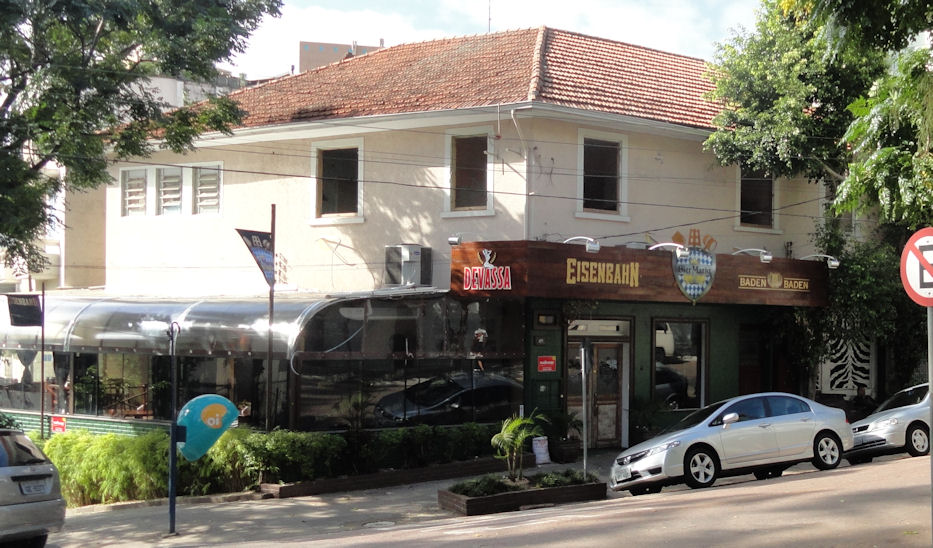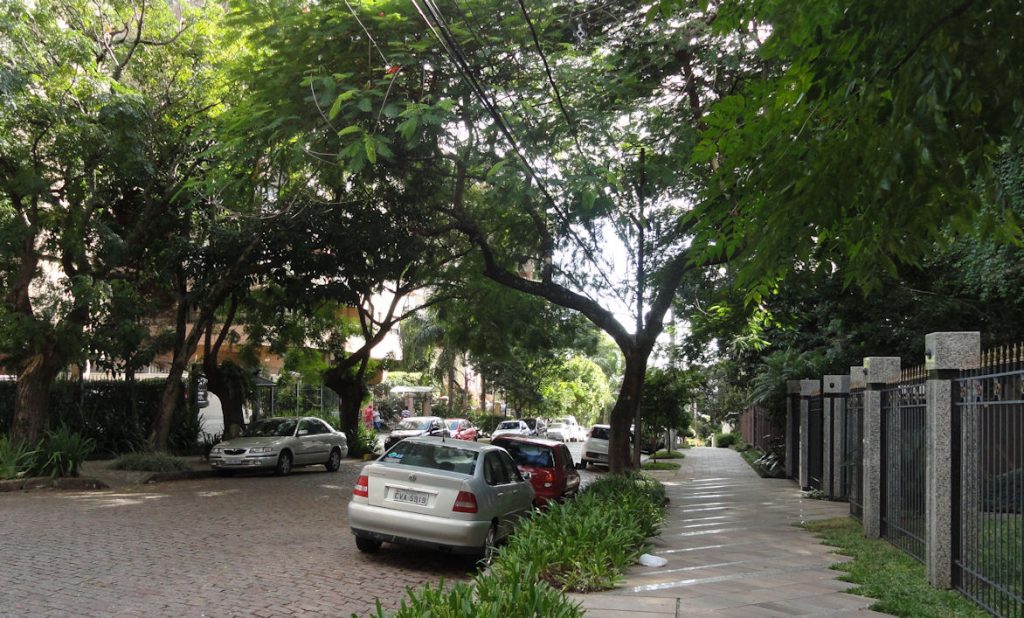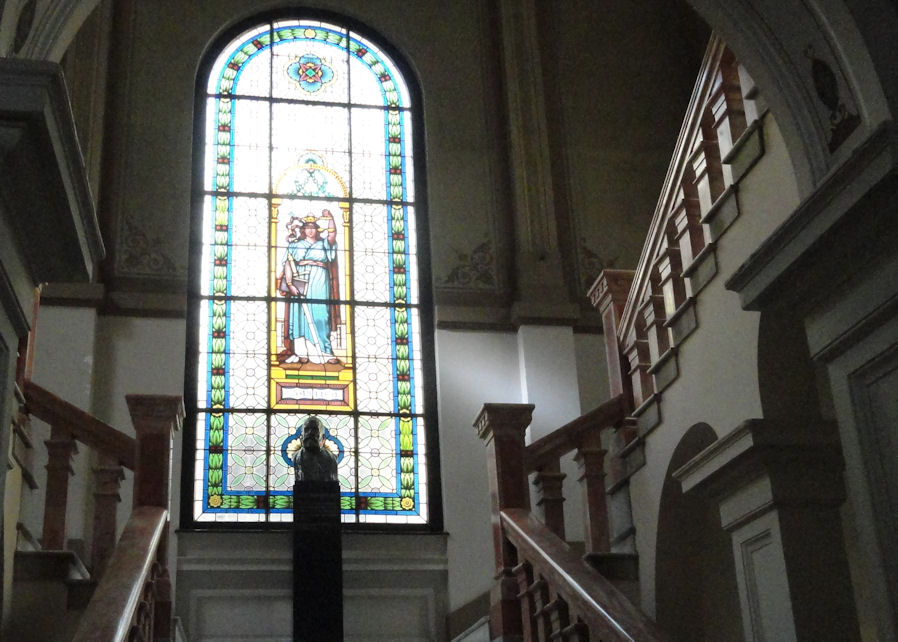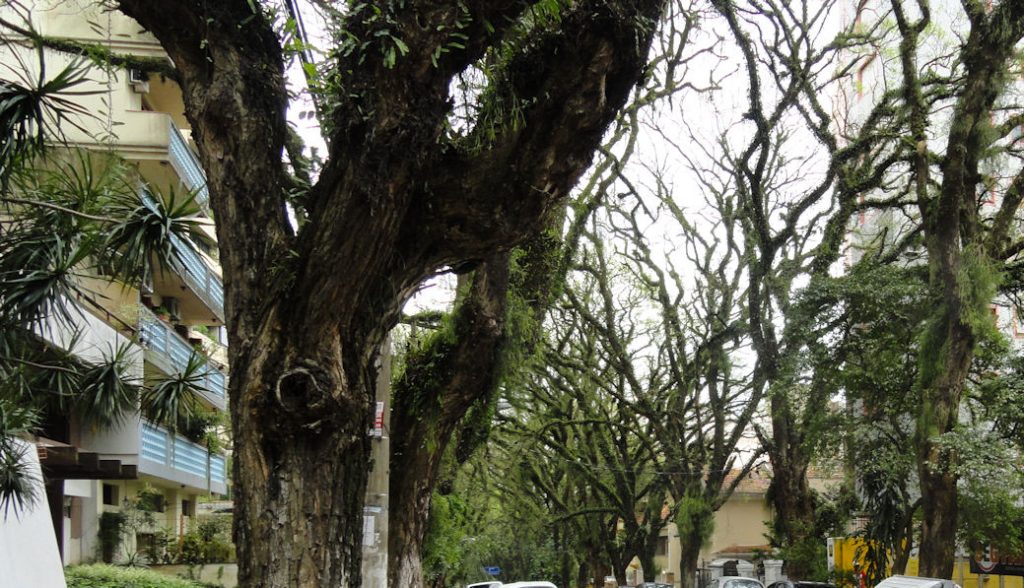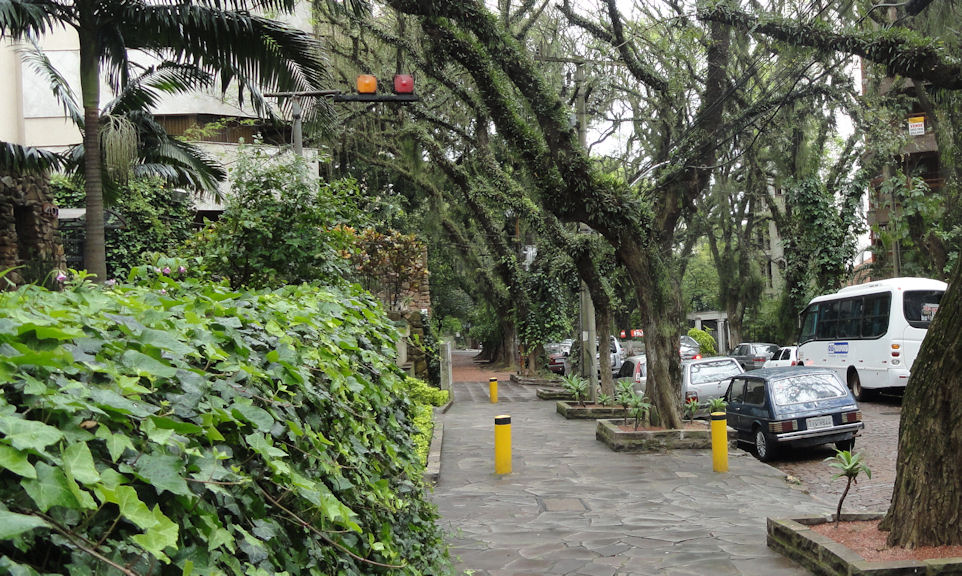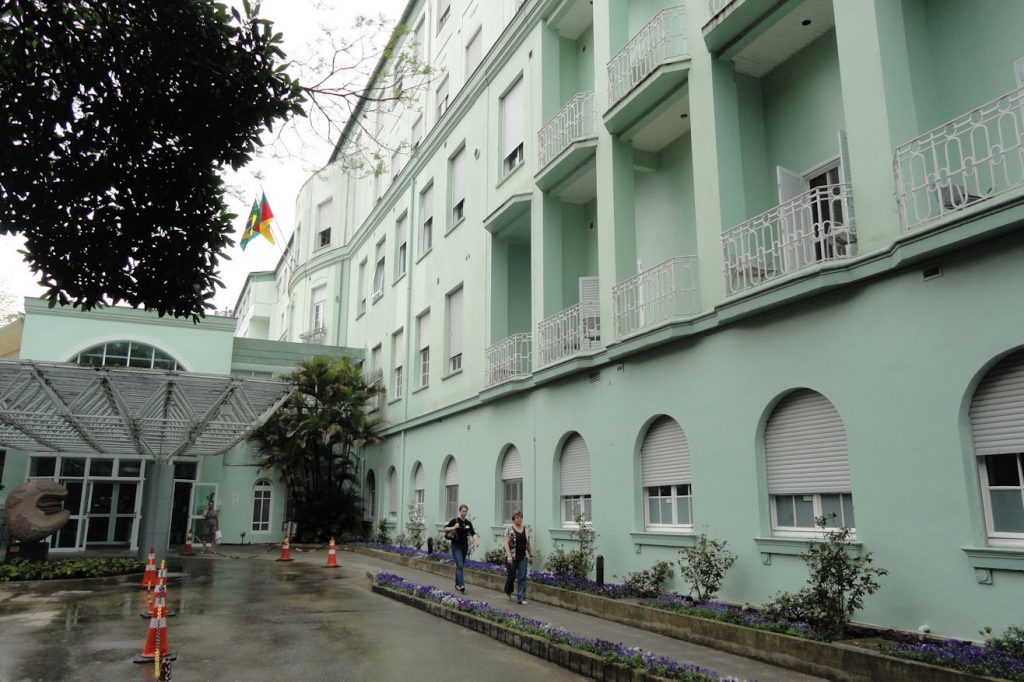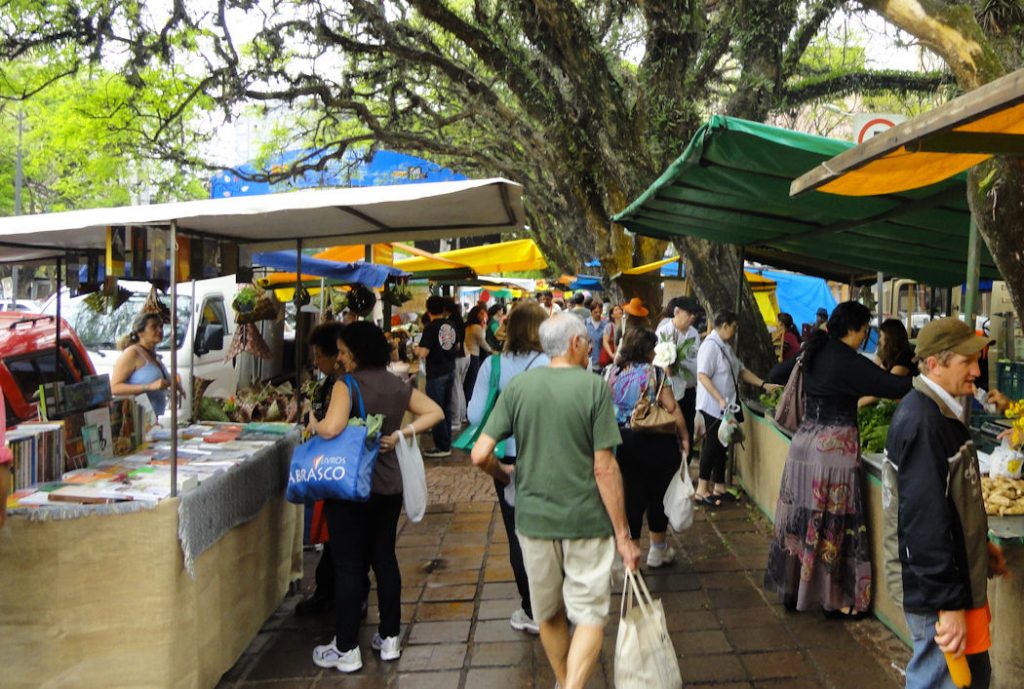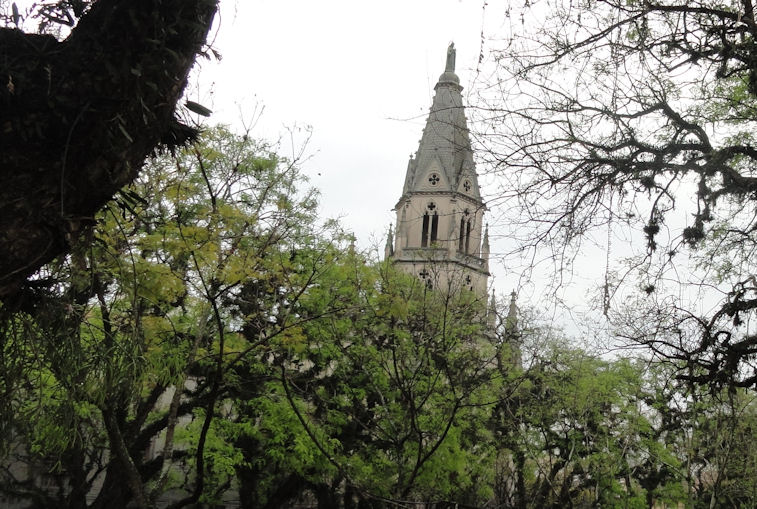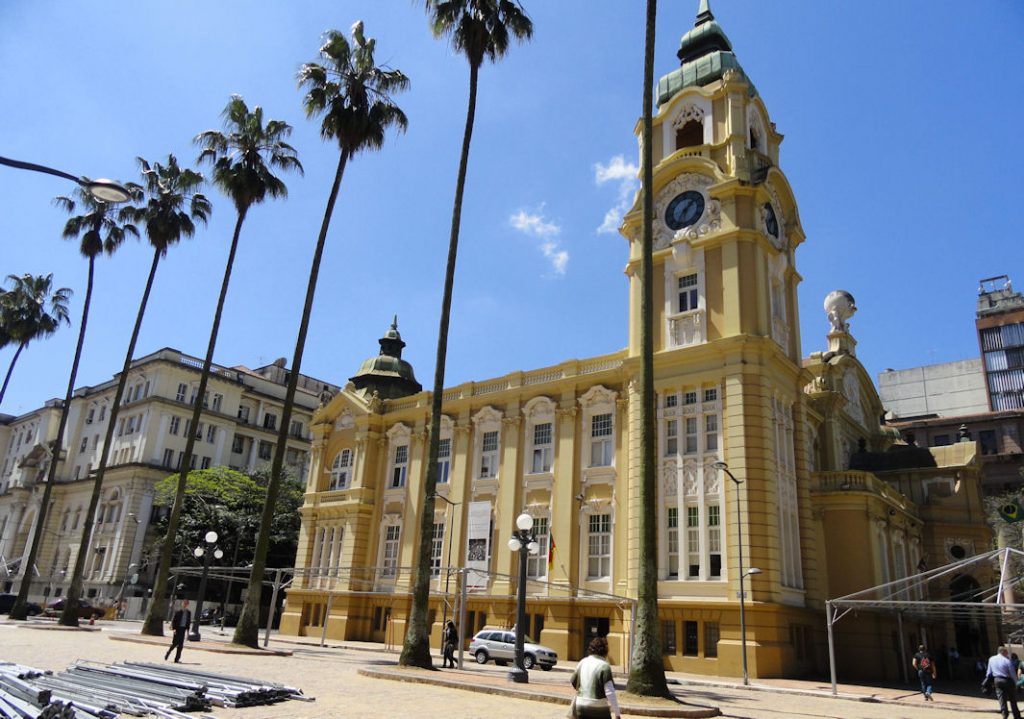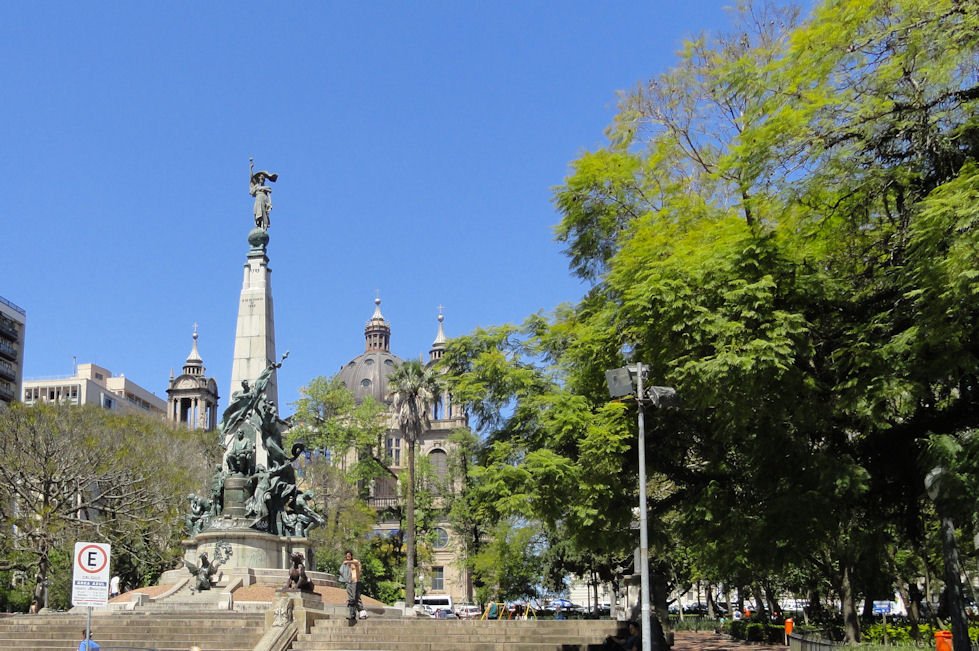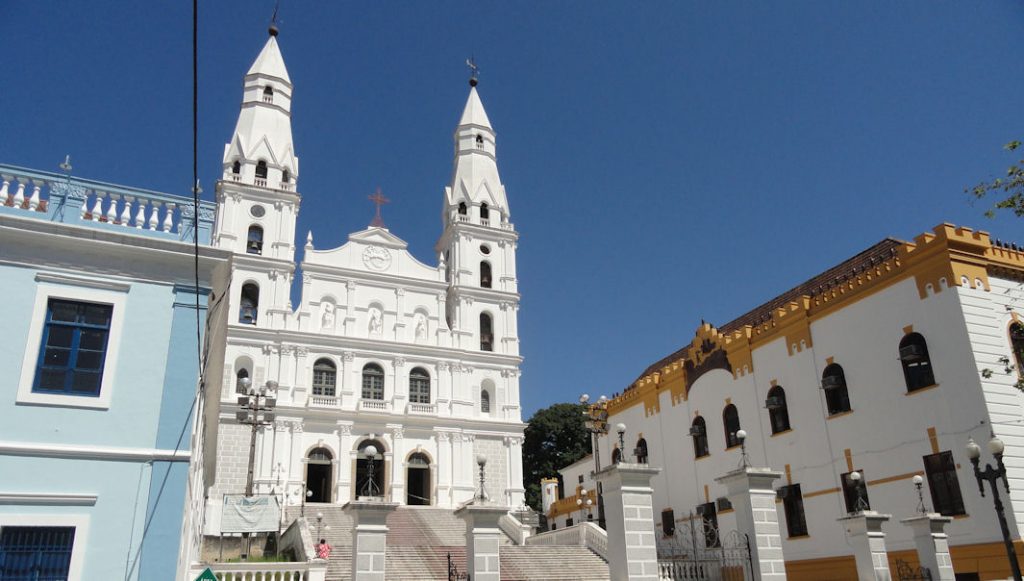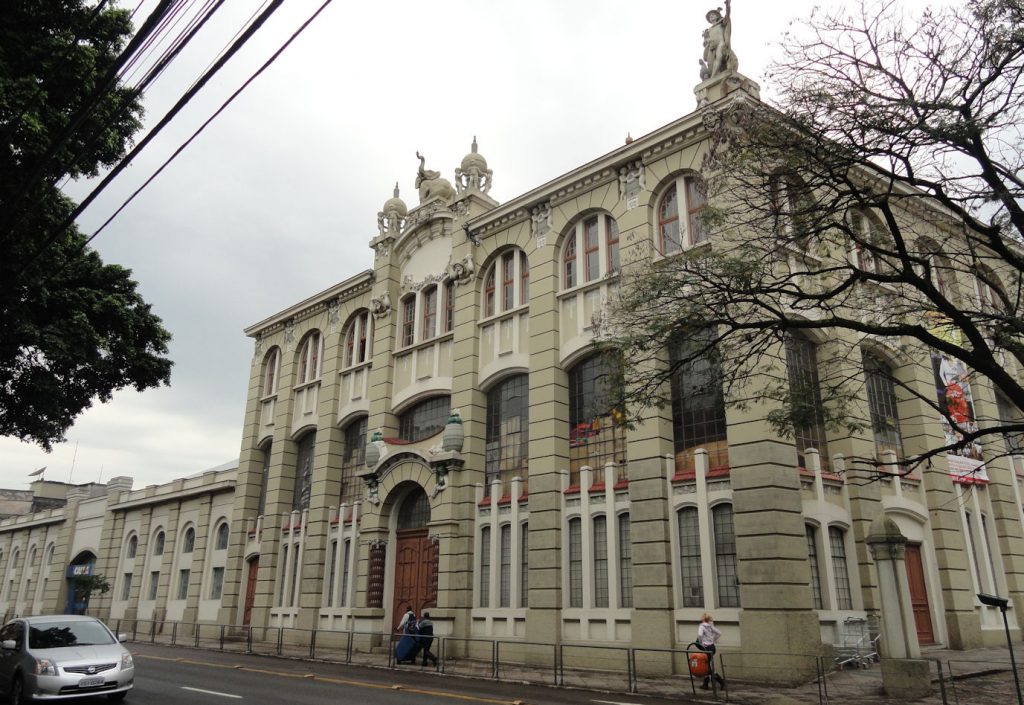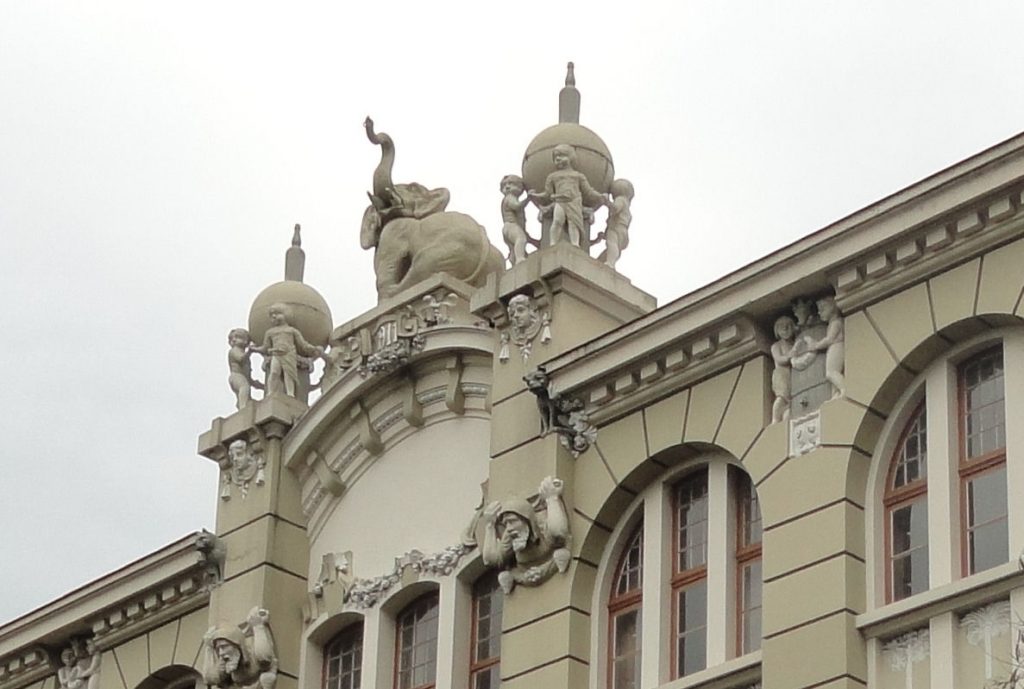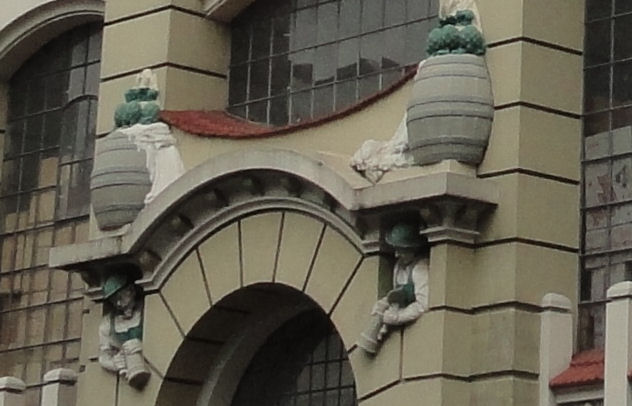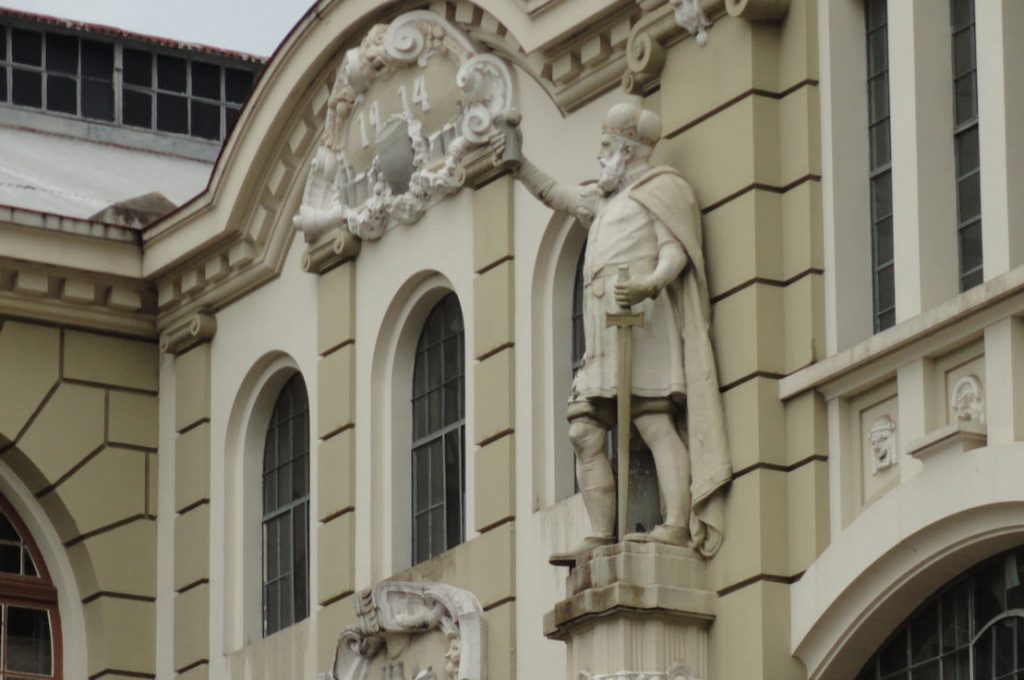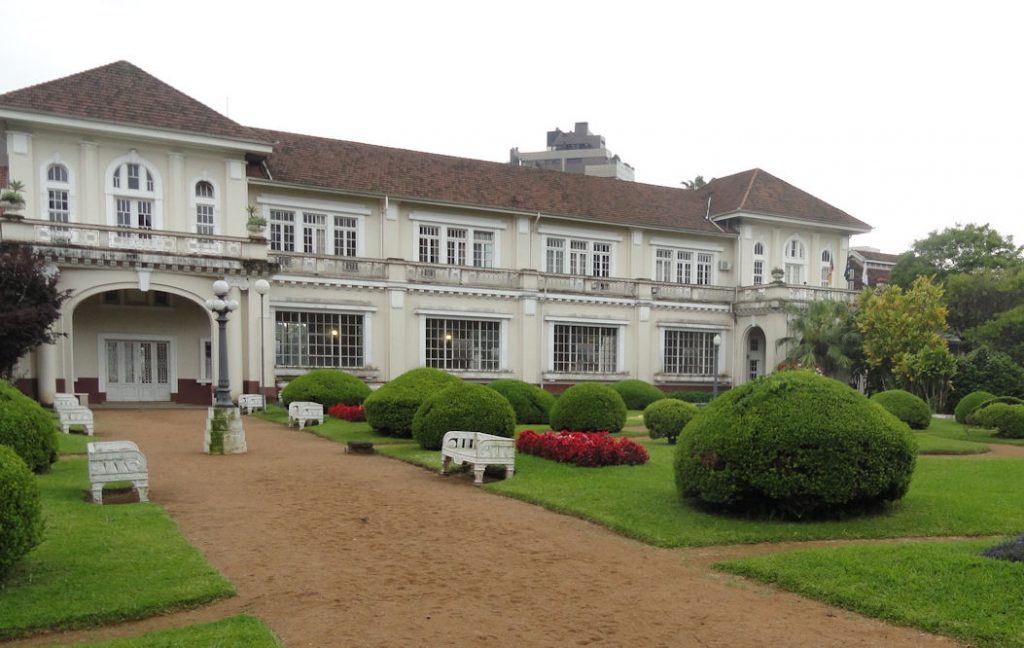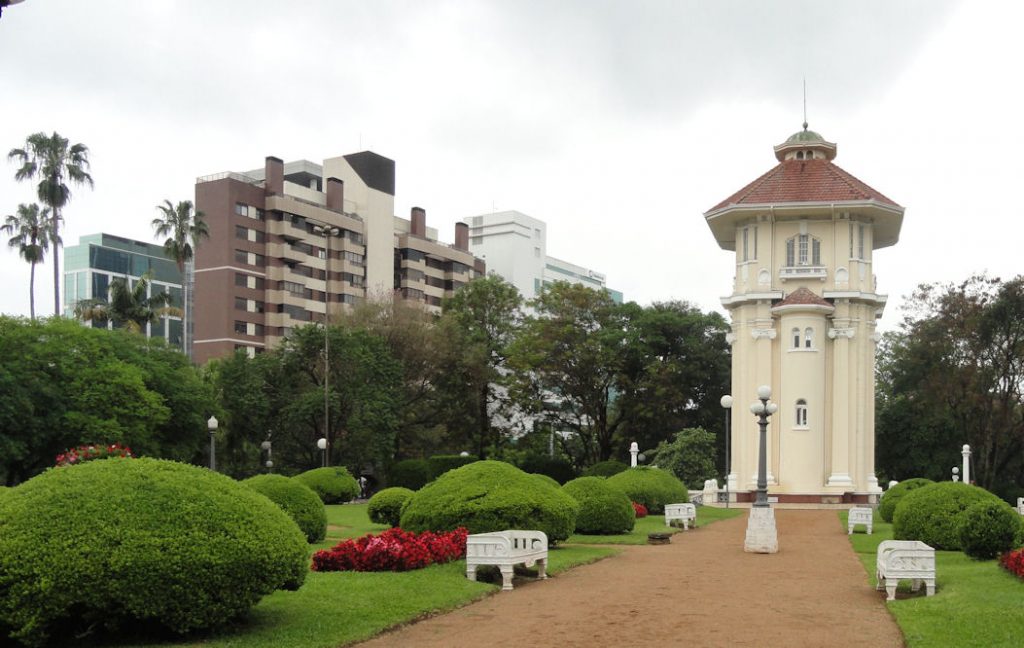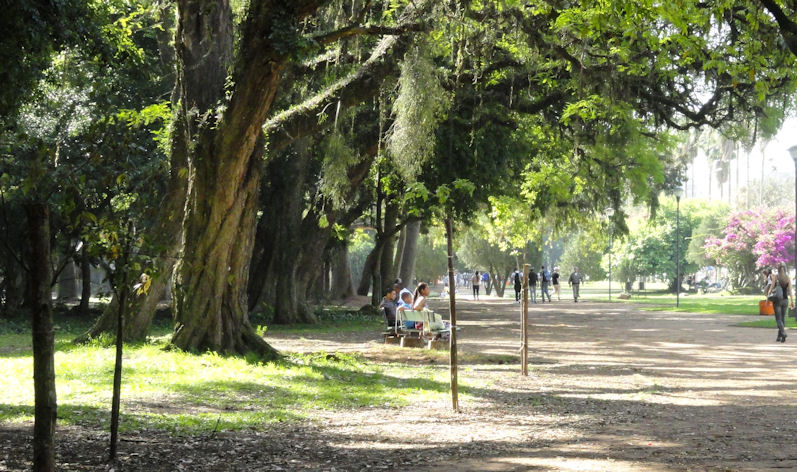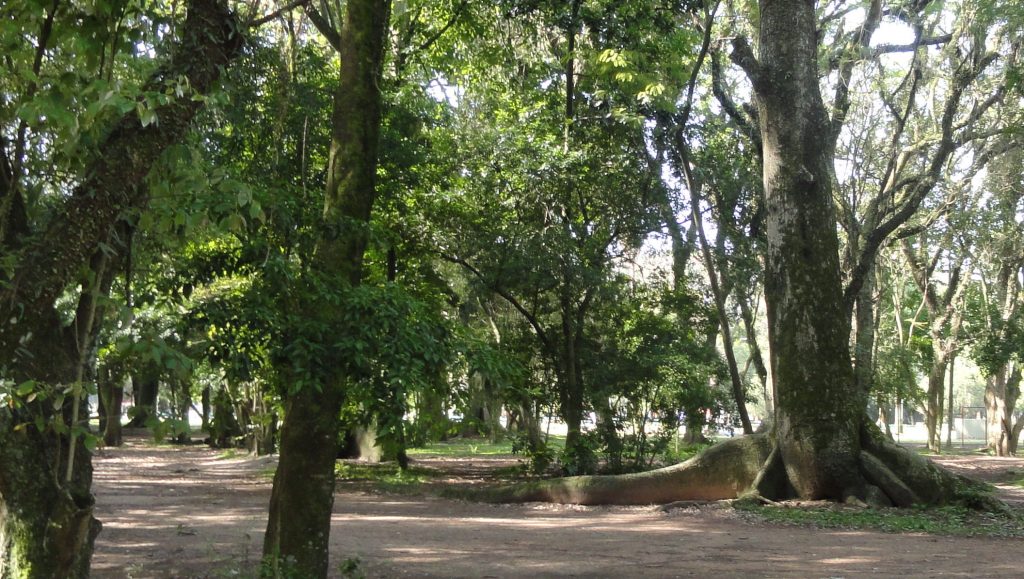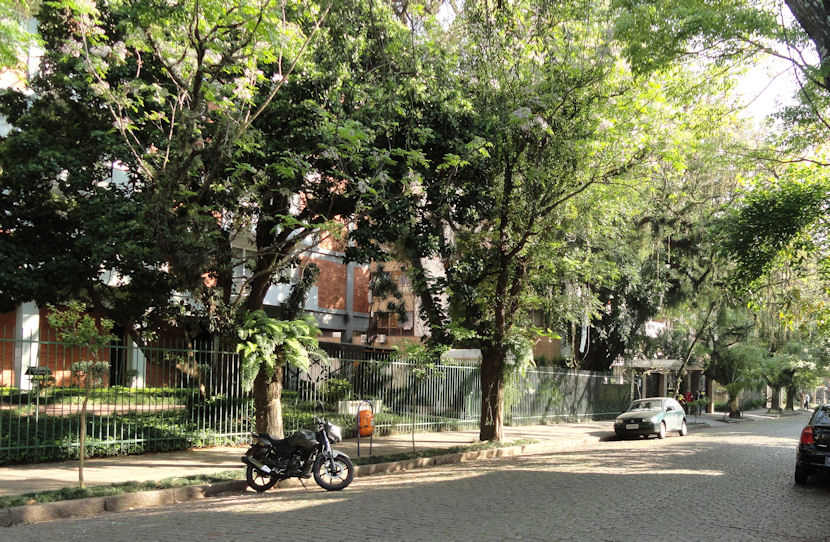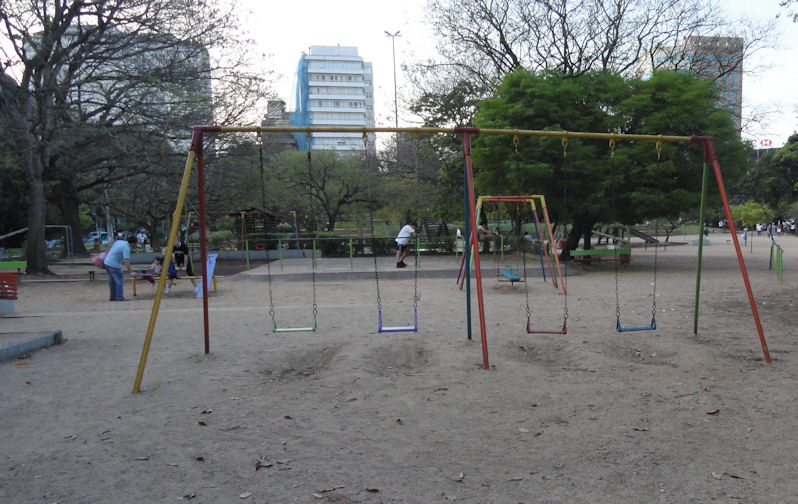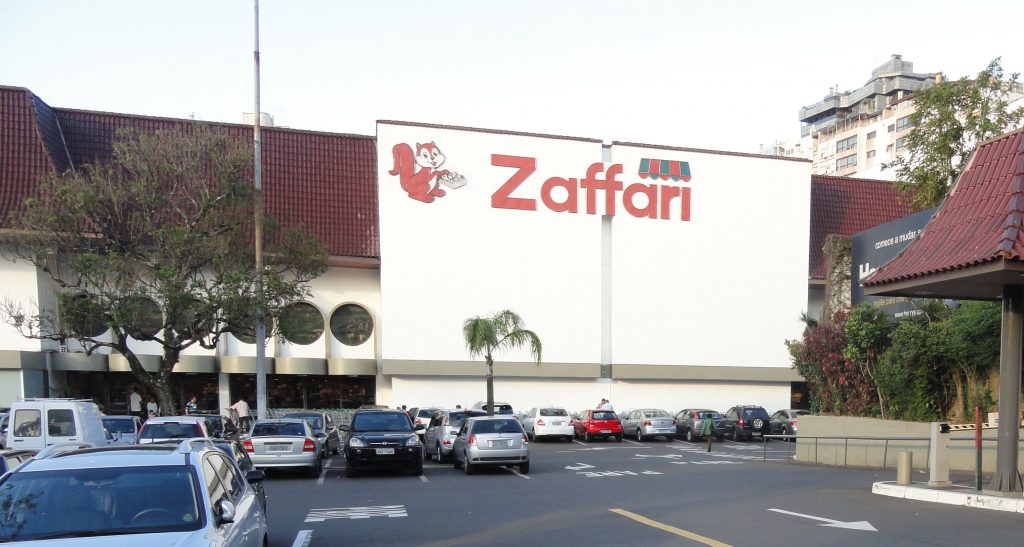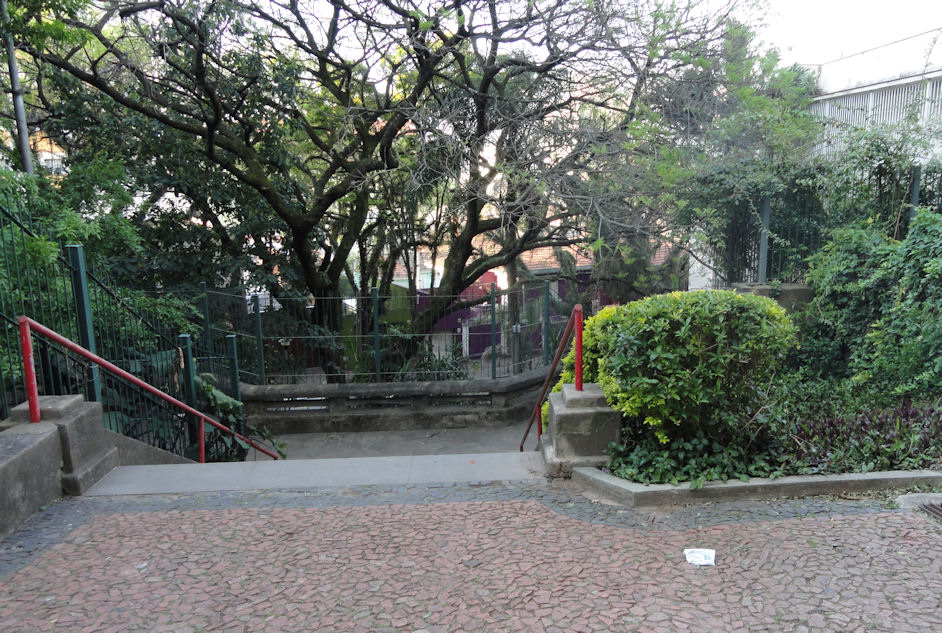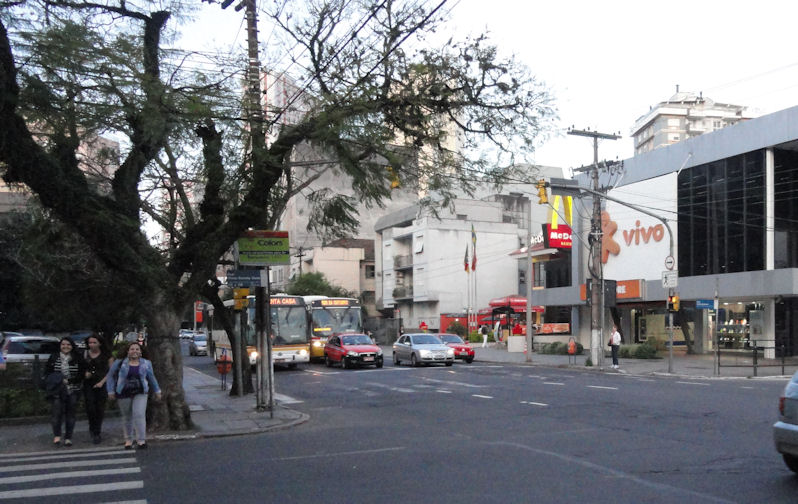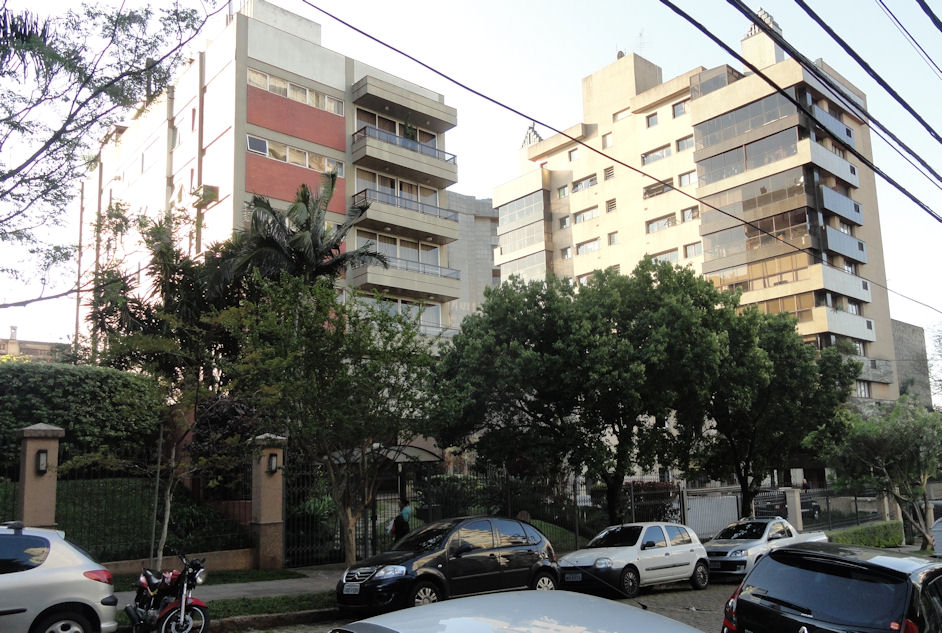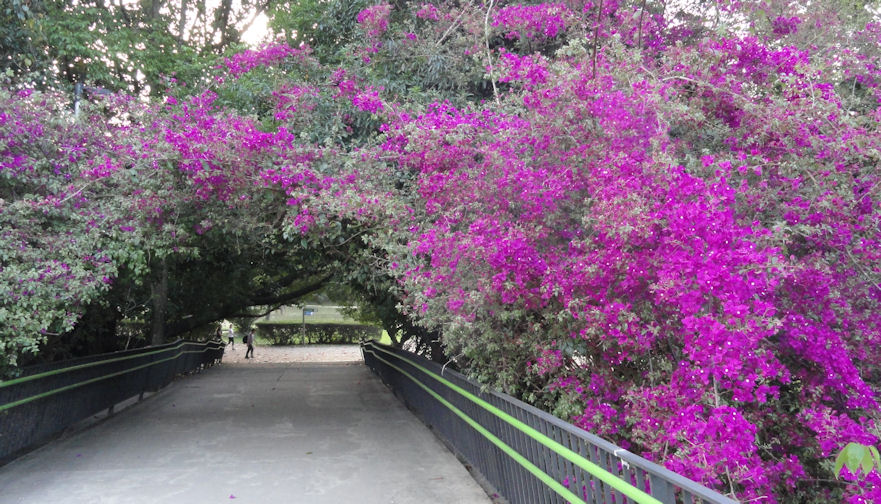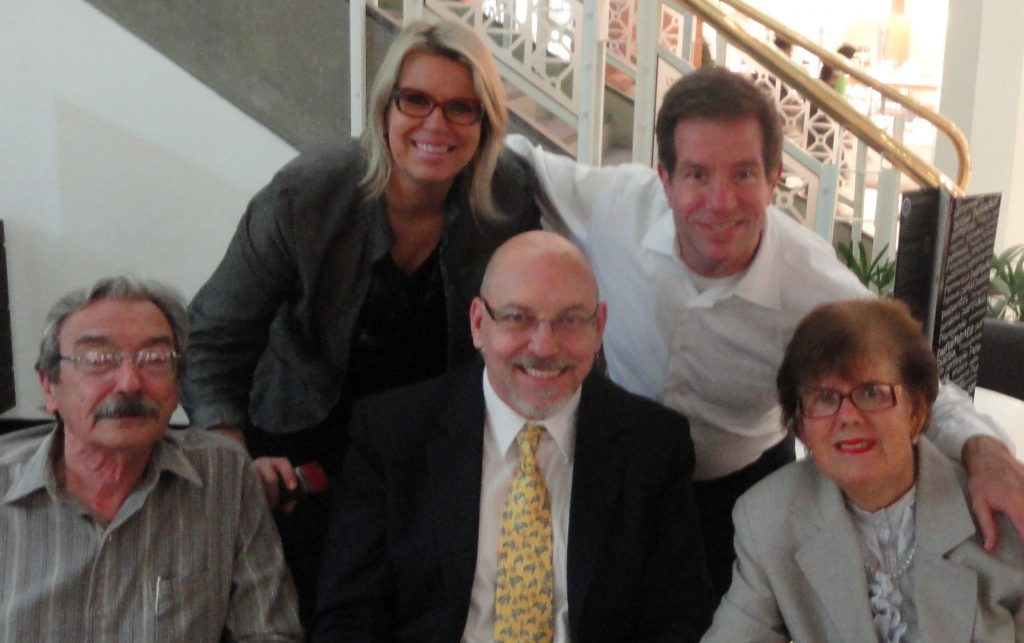O tempo se foi e não volta mais.
We were reunited, my old staff in Porto Alegre. It has been almost twenty-five years since I went boldly & over confidently to run the USIA post at the southern end of Brazil. Paulo, Ula and Cezar came to the reunion, along with Ulla’s niece. Our driver, Azambuja, died, so he didn’t show up. At least nobody saw. But we told stories about him, which kept him there in spirit. Azambuja had the interesting habit of talking about himself in the third person and talking to himself generally, so maybe it was not that different.
Paulo and Ula are in their 80s. Cezar is a little younger than I am, i.e. a very young man. Reunions are always bittersweet. Porto Alegre was my first post. I made all kinds of mistakes and my loyal staff saved me from the embarrassment of getting knocked my own overconfidence. The initial condition has a great influence on subsequent developments. My bosses were thousands of miles away in Brasilia and they generally neglected me down at the end of the road. I got to/had to make decisions that were beyond my pay grade. Being in PAO in POA helped me develop a sense of self reliance, which today makes me admirably independent or weirdly idiosyncratic, depending on who you ask or when. I wouldn’t want it any other way.
The work was different back then. We were really isolated. I don’t think that you can be that isolated anywhere in the world today. Even in the desert in Iraq, we had the latest news. In Porto Alegre I couldn’t get an English-language newspaper until a couple days later. Most days I had no contact with either Washington or Brasilia. I didn’t really miss that. We didn’t have easy access to CNN. We had a couple of horrible computers, that didn’t really do anything but word processing and didn’t do that well. Generally, I would write with pen and paper and Ula would type or use the telex. Back then, I could plausibly deny that I had the chance to consult with my superiors. It is different now. I like the Internet, but I think we communicate too much now. It is better to let the person on the spot make decisions whenever possible. Because we can, we too often ask for advice even on small matters and too often want to micro-manage the work of far-off colleagues. My father told me that you should not spend a dollar to make a dime decision. He was right.
Talking to my old friends, I remembered the lines of an epitaph, “As you are now, so once was I; as I am now, so shall you be.” I remember back then looking at Paulo & Ulla as a little behind the times. I was young, up-to-day & filled with best ideas a new MBA could have. I was riding the wave of the big trends of the late 1980s. It gets harder to keep up with trends and eventually you just don’t. Some of the trends are going nowhere anyway. The things I learned from reading the Greek classics are still with me and still useful. Many of the things I learned as a sharp MBA are perniciously out of date.
Ula and Paulo have had good lives, full of accomplishments and generally good health into old age. That is all we humans really get on this earth. The young look forward with great expectations. The view from the other end is a little sad, but it shouldn’t be if you can say “I fought the good fight, I finished my course, I kept the faith.”
I recall the story of Solon & Croesus from Herodotus.
